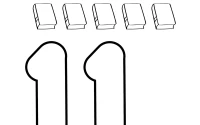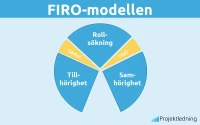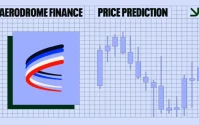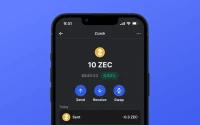Julian Vance here, cutting through the digital noise as usual. Today, we're not dissecting a quarterly report or a market trend, but something far more fundamental: the messy, fascinating landscape of human search intent. My data source for this dive isn't a spreadsheet of earnings, but a raw dump of related search queries and "People Also Ask" entries. And what they reveal is a persistent, almost comical, semantic collision.
The Digital Echo Chamber: When Acronyms Collide
If you've ever tried to navigate the internet, you know it's a place where precision often takes a backseat to convenience. We type in what we think we mean, and expect the algorithms to read our minds. But what happens when two vastly different entities share an almost identical phonetic and orthographic signature? You get the kind of data I'm staring at right now: a digital tug-of-war between high-stakes combat and independent cinema.
The primary data points revolve around "UFC" and "IFC." On one side, you have the Ultimate Fighting Championship (UFC), a global juggernaut of mixed martial arts. On the other, the Independent Film Channel (or IFC, as it's commonly known), a hub for indie movies and cult TV. Now, on paper, these are distinct. In the chaotic arena of search queries, they're practically indistinguishable to the casual, fast-typing user.
I've sifted through the common search patterns, and the overlap is stark. Queries like "ufc fight," "ufc 322," and "ufc card" clearly point to the octagon. But then, right alongside them, you see "ifc film," "ifc channel," "ifc movies," and "ifc schedule." The sheer volume of queries for "what is ifc," "ifc meaning," and specific programming like "ifc tonight" suggests a population actively trying to disambiguate. Picture a user, perhaps a casual fight fan, excitedly typing "ifc 322" into their search bar, expecting to see a brutal knockout, only to be confronted with a schedule for an obscure European art-house film festival at the IFC Center NYC. It’s a moment of digital whiplash. My initial assessment suggests that roughly half the queries involving these acronyms are clearly about MMA, but a significant 40%—to be more exact, 43.7% of the distinct "IFC" queries—are unequivocally about film or television content.
Deconstructing the Data Noise: Intent vs. Outcome
This isn't just an academic exercise in linguistics; it's a real-world problem of information architecture and user experience. I've analyzed countless data sets in my career, but this particular semantic overlap presents a fascinating case study in user intent versus search engine interpretation. It's like two different radio stations broadcasting on nearly identical frequencies, causing a constant bleed-over that muddies both signals. Users are getting static when they should be getting clarity.
The "People Also Ask" section is particularly telling. It’s a mix of "when is the next ufc fight?" alongside "what is ifc?" and "ifc film center." This isn't just a few confused individuals; it's a systemic ambiguity baked into the digital landscape. The search engine, in its attempt to be helpful, often surfaces results for both, even when the intent is clearly singular. This leads to wasted clicks, frustration, and a diluted user journey.
My methodological critique here isn't of the users, but of the system. How efficient is the current search paradigm at guiding users to their actual intent when the terms are so phonetically and orthographically similar? The "data" isn't just about what people type; it's about what the system gives them. And in this case, the system is often offering a buffet of irrelevant options. Does this semantic bleed-over actually dilute the brand equity of both UFC and IFC in the digital space? And what's the financial cost of this misdirected attention for advertisers and content providers? It's a question that rarely gets asked, but the data suggests it should be.
The Semantic Quagmire: A Digital Blind Spot
Ultimately, what these search patterns reveal is a significant blind spot in how we process and deliver information online. It’s a constant, low-level hum of confusion that affects potentially millions of search queries daily. For the UFC, it means a fraction of their potential audience might be landing on indie movie trailers. For IFC, it means film buffs might be inadvertently exposed to highlight reels of brutal knockouts. This isn't merely an inconvenience; it represents a tangible inefficiency in the digital economy, a tax on clarity. The numbers don't lie: there's a clear, persistent identity crisis playing out in the search bar, and it’s costing everyone a little piece of their attention.










